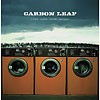Carbon Lead
It seems as though the band most well known for its 2002 hit “”The Boxer,”” from their album Echo Echo, has turned a little less Celtic and a little more country. Another mediocre pop-alt-country group is all the world needs.
Corny and hokey are two ways to describe this Richmond, Virginia quintet’s latest release, Love, Loss, Hope, Repeat. Although their recognizably Irish-accented vocals are still intact, the group has transformed into more of a twangy pop rock band.
From the latest album, not one song stands out as a hit single or sounds even moderately interesting for radio play. But one song must take the identity of single and for this album it is the first track, “”Learn to Fly.”” This song is, unfortunately, just plain uninteresting and is nowhere near as high-energy as past Carbon Leaf hits. There is not one strong beat to the song and the lyrics are just as ordinary as the music when they sing, “”A dirty bird like me will learn to fly.”” Not that singing about learning to fly has ever been done before or anything.
Carbon Leaf
Love, Loss, Hope, Repeat
Vanguard Records
Rating: 5/10
Carbon Leaf seems to have lost some of its spunk with Love, Loss, Hope, Repeat. Sadly, no longer will this band make you want to move to Ireland and do a little jig.
Amy Wieseneck
Dylan’s latest doesn’t disappoint
One approaches Bob Dylan’s new album with a feeling of tremulousness.
Maybe it’s the starkness of the title, Modern Times – perhaps a nod to Dylan’s old hero Charlie Chaplin. Maybe it’s the gloomy portent of the names of the songs: “”Thunder on the Mountain,”” “”When the Deal Goes Down,”” “”The Levee’s Gonna Break.””
But more than anything, it’s the sense of a career that might break. Dylan’s last two albums have been among the very best he’s made. Only two years ago he released an autobiography that, as art, might stand with anything he’s ever sung.
With a streak like that, the old boy’s bound to stumble sooner or later. Right?
No need for concern. Modern Times is not only a fine album, but it might be the sweetest-spirited, most purely enjoyable record Dylan has made since 1967’s Nashville Skyline.
“”Thunder on the Mountain”” might sound ominous, but it’s a high-spirited gallop that’s a lot closer to Chuck Berry than Wagner; complete with hilarious, Berry-esque lines like “”I’ve sucked the milk out of a thousand cows.””
On his great comeback album, 1997’s Time Out of Mind, Dylan sounded like he was getting ready to go knocking on heaven’s door. Tired, depressed and all too aware of his mortality, this Dylan didn’t seem likely ever to sing another note.
Five years ago, on Love and Theft (released Sept. 11 – yes, that Sept. 11), a new Dylan suddenly unveiled himself. He looked like a shifty-eyed riverboat gambler and sang like a gruffer version of Robert Preston’s fast-talking con man in “”The Music Man.””
That transformation is completed on Modern Times, an ironic title since most of it could have been recorded before Dylan was even born. Close your eyes while you listen and you might be back in a smoky, crowded cabaret of the roaring ’20s.
Of course, Dylan drops an anachronism here and there – like the out-of-nowhere Alicia Keys reference on “”Thunder on the Mountain”” – just to prove he hasn’t been asleep for the last 20 years. On “”Spirit on the Water,”” the old trickster even manages to reference Deep Purple and the Old Testament in the same breath.
As for “”The Levee’s Gonna Break,”” a version of the old blues classic that inspired Led Zeppelin’s scorching stampede “”When the Levee Breaks,”” it’s as cheerful and brisk as a foxtrot. If Zeppelin seemed to be playing in the roar of the floodwaters, Dylan is playing in the eerie silence of the morning after the disaster.
That feeling of plain, uncontrived ominousness finds its way into the last song, “”Ain’t Talkin’,”” a dark and menacing tragedy in the mode of Dylan’s old story-songs.
Yet the mood is not that of the old songs; the Dylan here is no longer the stern and cold-eyed Puritan prophet of “”Gates of Eden”” and “”A Hard Rain’s A-Gonna Fall,”” but something closer to the wanderer who narrates his greatest song, 1983’s “”Blind Willie McTell,”” an outcast as solemn and solitary as Cain.
“”Ain’t Talkin'”” and a few other tracks here may prove to be among Dylan’s best. Yet it’s hard to call the album a masterpiece, exactly; it doesn’t have that sort of epic feeling. It’s a deeply satisfying record, and probably more than anyone could have hoped for from a 65-year-old Dylan.
Of the artists comparable to Dylan, only Johnny Cash, in his last years, seemed as unbowed by age. May he make three more albums even half as good as this one, and go on touring until the very last deal goes down.
Justyn Dillingham









